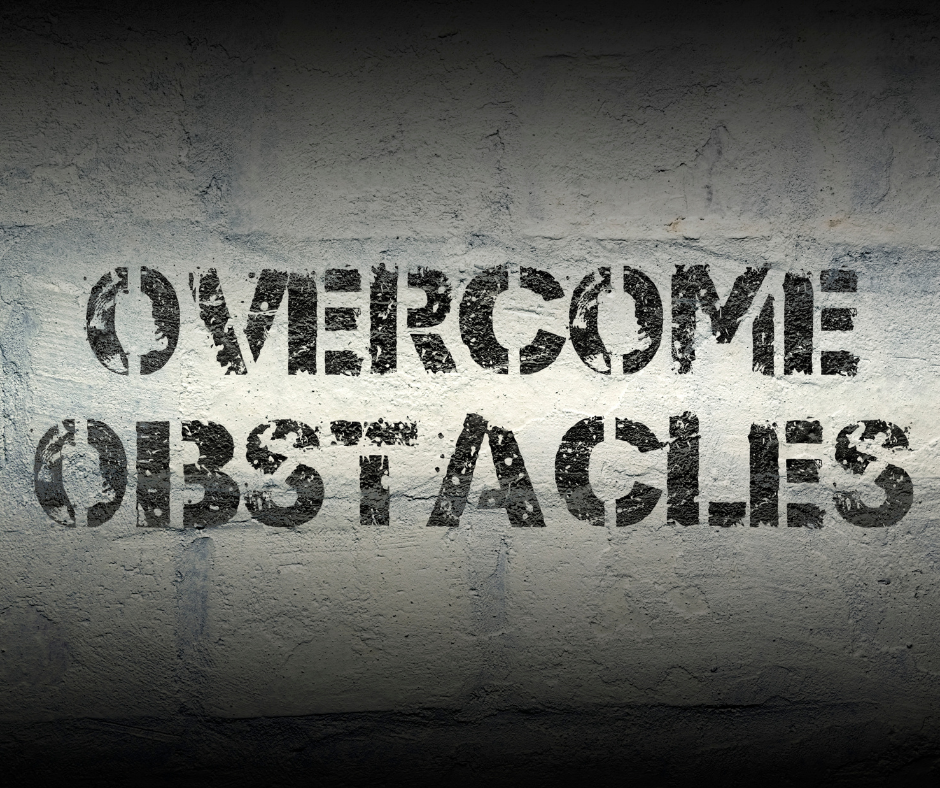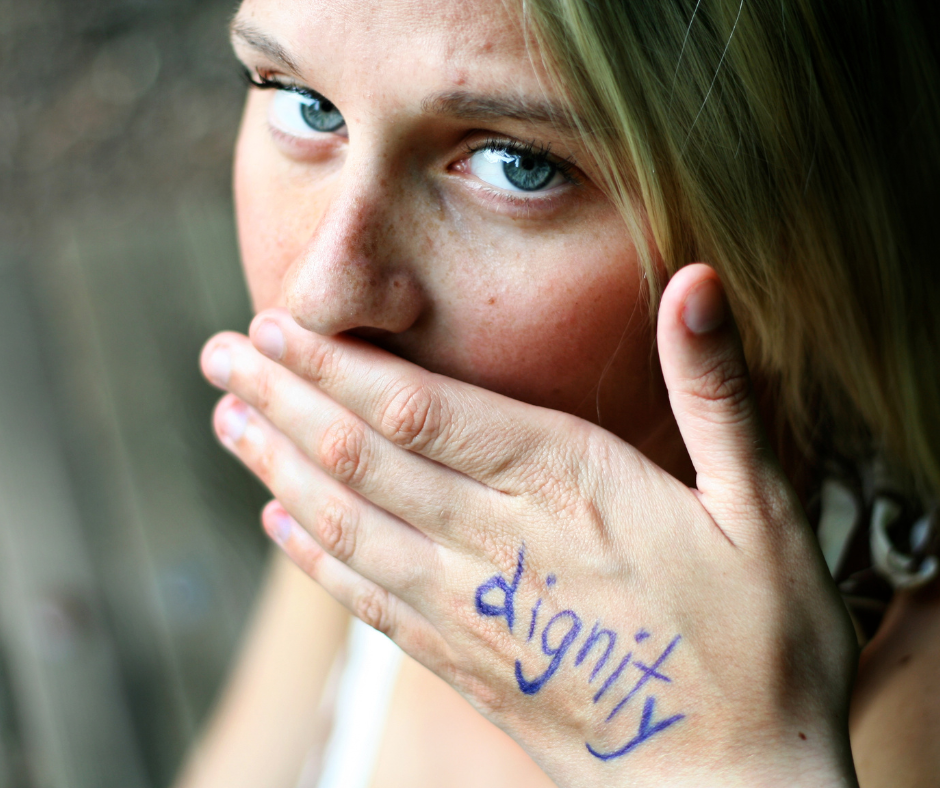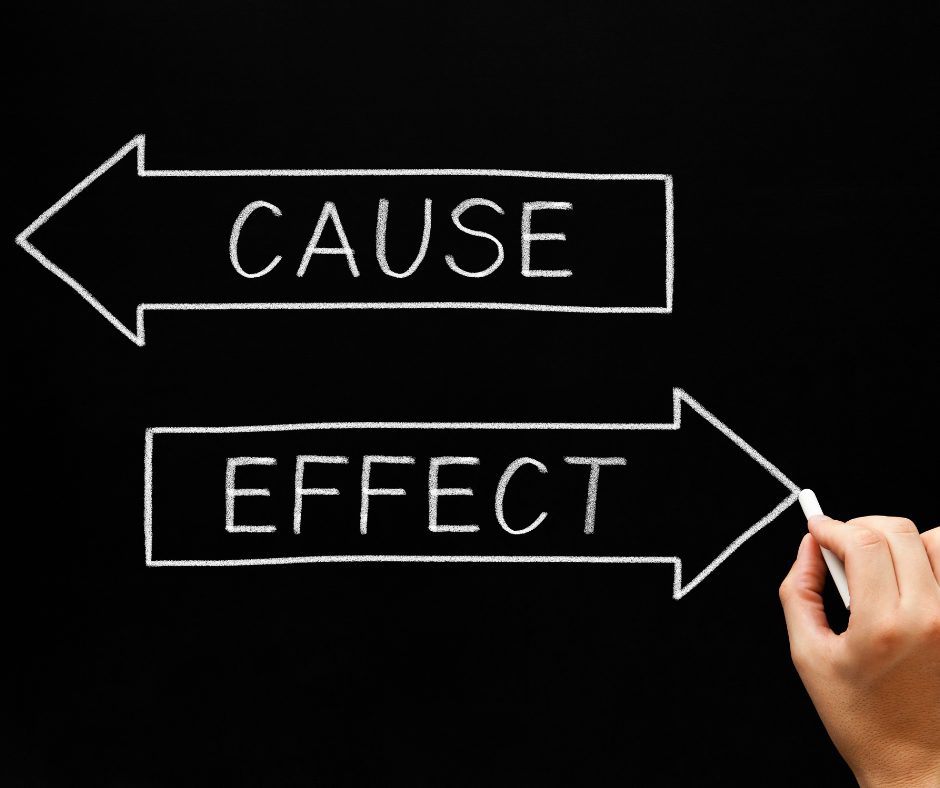Fear of failure can paralyze even the most capable women, especially those who have faced life’s toughest challenges. But what if failure was not something to fear, but something to embrace? What if it was a powerful force that could propel you to heights you never imagined? Why Women Fear Failure Society often holds women to higher standards, expecting perfection in every role—from motherhood to career. For widows, this pressure can be even more intense, with societal expectations adding to the burden of loss. Understanding this fear is the first step toward conquering it. The Power of Vulnerability Acknowledging your fear of failure is not a weakness; it’s a strength. When you are vulnerable, you open yourself up to growth. Embrace your fear and recognize that it is a natural part of taking risks and pursuing your dreams. Strategies to Empower Accept Imperfection: Embrace your imperfections as part of your unique journey. Perfect is an illusion; progress is what truly matters. Take Calculated Risks: Don’t let fear hold you back from trying new things. Start small, and as you gain confidence, take bigger steps toward your goals. Build a Support Network: Surround yourself with other women who understand the challenges of overcoming failure. Their support will be invaluable as you push past your fears. Learn from Each Experience: Each failure is a lesson in disguise. Analyze what went wrong, and use that knowledge to do better next time. Take Action Now Challenge yourself today to do something that scares you. Whether it’s speaking up in a meeting, pursuing a new career path, or simply trying something outside your comfort zone, remember that failure is just another step on the road to success. Empower yourself by facing your fears head-on and turning them into opportunities for growth.
Embracing Failure: Turning Setbacks into Stepping Stones for Women
Failure is not the end—it’s a beginning. Women across the world often face immense pressure to succeed, sometimes forgetting that setbacks are part of the journey. Embracing failure isn’t about accepting defeat; it’s about transforming it into a stepping stone toward greater success. Understanding Failure Women, especially those in vulnerable communities, often experience failure as a defining moment. It’s essential to shift this perspective. Failure is merely feedback, an opportunity to learn, grow, and come back stronger. By changing how we view failure, we empower ourselves to take risks and push beyond our comfort zones. Building Confidence Through Adversity Confidence isn’t about never failing; it’s about knowing you can rise again. For women, especially widows who may already feel marginalized, each failure can chip away at self-esteem. To build confidence, start by celebrating small victories and recognizing your resilience. Reflect on past challenges and how you’ve overcome them. This reflection fosters self-belief and prepares you to face future obstacles with courage. Strategies for Resilience Reframe Your Mindset: Understand that failure is not a reflection of your worth. Reframe setbacks as opportunities to learn. Seek Support: Surround yourself with a community that uplifts you. Share your struggles and triumphs with others who understand your journey. Set Realistic Goals: Break down your goals into smaller, manageable steps. This makes the path to success more achievable and less overwhelming. Practice Self-Compassion: Be kind to yourself during setbacks. Self-compassion fuels resilience, allowing you to recover from failure with grace. Take Action Now Embrace failure today. The next time you face a setback, remember it’s a stepping stone, not a stumbling block. Confidence and resilience aren’t built in moments of comfort—they’re forged in the fire of adversity. Embrace each failure as a step closer to your ultimate success.
Widows as Leaders: The Key to Unlocking Global Progress By Voice of Widows
Widows are often overlooked in discussions of leadership and empowerment, yet they hold the key to unlocking global progress. When widows are empowered to take on leadership roles, they bring unique perspectives and strengths that can drive meaningful change in their communities and beyond. The Urgency of Empowerment Globally, millions of widows are struggling to survive in the face of economic hardship and social isolation. These women are often excluded from leadership opportunities, despite their potential to make a significant impact. The time to change this narrative is now. Empowering widows to be leaders is not just about giving them a voice—it’s about recognizing their inherent value and potential. Widows have lived through profound loss and hardship, yet they continue to persevere. This resilience is a powerful asset in leadership, enabling widows to drive change and inspire others. Emotional and Social Transformation Leadership is not just about power—it’s about transformation. For widows, taking on leadership roles can be a way to heal from their loss and rebuild their lives. It gives them a sense of purpose and a platform to advocate for others. This emotional and social transformation is not just beneficial for the individual widow—it has the potential to transform entire communities. Taking Immediate Action The time to empower widows as leaders is now. This requires a concerted effort from governments, non-profits, and communities to provide widows with the resources and support they need to succeed. It also requires a shift in societal attitudes, recognizing the value and potential of widows as leaders. We cannot afford to wait any longer. By empowering widows to be leaders, we are investing in a brighter future for all. Let’s take action today to unlock the potential of widows and drive global progress.
From Grief to Glory: How Widow Leadership is Shaping a New Global Era By Voice of Widows
Widowhood is often seen as a time of sorrow and loss, but for many women around the world, it is also a time of profound transformation. When widows are empowered to take on leadership roles, they become powerful agents of change, shaping a new global era of progress and equality. The Global Crisis of Widowhood The challenges faced by widows are immense. In many parts of the world, widowhood is accompanied by social isolation, economic hardship, and discrimination. Widows are often left to navigate these challenges alone, without any support. But this crisis is also an opportunity—an opportunity to empower widows to become leaders and change-makers. The urgency of this issue cannot be ignored. Every day, widows around the world are denied their rights and their dignity. But when we empower these women to lead, we are not just addressing their immediate needs—we are paving the way for a more just and equitable world. Emotional Empowerment Leadership is a powerful tool for emotional empowerment. For widows, taking on a leadership role can be a way to reclaim their identity and find meaning in the face of loss. It gives them the confidence to speak out, to advocate for themselves and others, and to drive change. This emotional empowerment is not just beneficial for the individual widow—it has a ripple effect, inspiring others and transforming communities. Urgent Action Required Empowering widows to be leaders requires immediate action. This means providing widows with the resources and support they need to succeed, from education and training to financial assistance and legal protection. It also means challenging the social norms and stereotypes that hold widows back. The time to act is now. By empowering widows to be leaders, we can create a world where every woman has the opportunity to reach her full potential. Let’s join forces to turn grief into glory and unleash the power of widows to shape a new global era.
Breaking Barriers: The Global Movement to Empower Widows as Change-Makers By Voice of Widows
Widowhood often comes with profound grief, but for many women around the world, it also brings social isolation and economic hardship. Yet, in the face of these challenges, widows are rising as powerful change-makers. Empowering widows to take on leadership roles is not just a matter of justice; it’s a catalyst for global transformation. The Urgent Need for Change Widows are among the most marginalized groups in many societies, often facing discrimination and exclusion. Globally, millions of widows are left without support, struggling to provide for their families. But when these women are given the tools to lead, they can break the cycle of poverty and marginalization—not just for themselves, but for their entire communities. The urgency of this issue cannot be overstated. Every day that passes without action is another day that widows and their families remain trapped in a cycle of poverty and exclusion. But when we empower widows to be leaders, we are not just changing their lives—we are changing the world. Emotional Resilience Empowering widows is about more than just economic support—it’s about emotional resilience. Leadership gives these women a sense of purpose and a platform to advocate for change. It helps them heal from their loss and transform their grief into strength. Widows who become leaders often speak of a profound emotional shift, as they move from being seen as victims to being recognized as powerful agents of change. Actionable Steps To truly empower widows as leaders, we need to break down the barriers that hold them back. This means advocating for policy changes that support widow-led initiatives, providing access to education and training, and fostering inclusive communities that value the contributions of widows. The time to act is now. We cannot afford to wait any longer. By empowering widows to be leaders, we can create a world where every woman, regardless of her circumstances, has the opportunity to thrive. Let’s join together to break the barriers and unleash the potential of widows as change-makers.
Empowering Women with Disabilities: Breaking Barriers in the Workforce
In today’s rapidly evolving world, the journey towards workplace diversity and inclusivity has taken significant strides. However, amidst these advancements, there remains a group whose voices often go unheard – women with disabilities. These remarkable individuals not only navigate the challenges of everyday life but also strive to carve out meaningful careers despite societal barriers. Their stories of resilience, determination, and triumph deserve to be celebrated and shared. The Current Landscape Women with disabilities face a unique set of challenges when entering the workforce. From physical accessibility issues to prejudiced attitudes and limited job opportunities, the hurdles can seem insurmountable. According to recent statistics, the employment rate for disabled women lags significantly behind that of their non-disabled peers, highlighting the urgent need for change. Breaking Down Barriers However, the narrative is gradually shifting. Organizations worldwide are recognizing the immense value that individuals with disabilities bring to the table. They are not just advocating for diversity but actively implementing policies and practices that foster an inclusive environment. Initiatives such as accessible workplace accommodations, flexible work arrangements, and anti-discrimination policies are paving the way for greater opportunities. The Power of Representation One of the most powerful catalysts for change is representation. When women with disabilities see others like them succeeding in various fields, it ignites a sense of possibility and ambition. Their visibility not only challenges stereotypes but also inspires a new generation to pursue their dreams unapologetically. Actionable Steps Towards Inclusivity If you’re an employer or someone looking to support this cause, here are actionable steps you can take: Educate and Sensitize: Implement training programs to educate staff about disability etiquette, inclusive language, and the importance of accommodating diverse needs. Accessibility Matters: Conduct accessibility audits to ensure your workplace is physically and digitally accessible to everyone. Invest in assistive technologies and make necessary adjustments to facilities. Flexible Work Options: Offer flexible work schedules or remote work opportunities that can accommodate varying needs and abilities. Equal Opportunity Policies: Develop and enforce policies that promote equal opportunity and prevent discrimination based on disability. Foster a culture where differences are celebrated. Partner with Disability Organizations: Collaborate with organizations that specialize in supporting individuals with disabilities. This can help you tap into a pool of talented candidates and gain insights into best practices. The Urgency of Now The urgency to empower women with disabilities in the workforce cannot be overstated. Every day that passes without inclusive practices is a missed opportunity for innovation and progress. By dismantling barriers and embracing diversity, we not only enrich our workplaces but also contribute to a more equitable society. Embracing Emotional Impact Behind every statistic lies a human story of courage and resilience. Imagine the joy and pride of a woman with a disability securing her dream job, defying societal expectations, and proving her capabilities. These stories evoke empathy and compel us to take action, ensuring that every individual, regardless of ability, has an equal chance to thrive. Conclusion As we move forward in the pursuit of workplace equality, let us amplify the voices of women with disabilities. Let us champion their rights, celebrate their achievements, and create a future where inclusion is not just a goal but a reality. Together, we can build a workforce that reflects the diversity and strength of our society, where every woman, regardless of her abilities, can shine brightly. In the journey towards empowerment, there is no room for delay. The time to act is now.
Empowering Widows: A Journey Towards Self-Sufficiency and Dignity
Introduction: In the wake of loss, the journey towards rebuilding life can seem insurmountable. For young widows, the challenge is not only emotional but also financial and social. However, within this struggle lies incredible resilience and potential. Today, we delve into the story of young widows striving for self-sufficiency through entrepreneurship and reclaiming their dignity. Understanding the Journey: Imagine losing your life partner unexpectedly, leaving behind dreams shattered and responsibilities looming. This is the reality for countless young widows globally. Beyond grief, financial insecurity often looms large, especially when there are children to support. The traditional support systems may not always suffice, pushing many towards exploring unconventional paths. The Power of Entrepreneurship: Entrepreneurship emerges as a beacon of hope amidst despair. It offers not just income but also a sense of purpose and independence. Many widows have turned their pain into passion, leveraging skills honed during their partner’s life or discovering newfound talents. From crafting handmade goods to providing niche services, these businesses are not just about survival but about thriving against all odds. Challenges Faced: Starting a business as a young widow is fraught with challenges. Limited financial resources, lack of business experience, and societal stigma are formidable barriers. Moreover, balancing entrepreneurship with caregiving responsibilities adds another layer of complexity. Yet, these obstacles are not deterrents but catalysts for innovation and determination. Support Systems: Recognizing the unique needs of young widows, support systems tailored to their entrepreneurial aspirations are crucial. Mentorship programs, financial assistance, and emotional support networks play pivotal roles in nurturing their ventures. Communities and organizations dedicated to empowering widows provide invaluable resources, fostering a sense of belonging and encouragement. Actionable Steps Towards Empowerment: Skills Development: Invest in training and skill development programs tailored to entrepreneurial needs. Financial Literacy: Provide workshops on financial management and access to microfinance options. Mentorship: Pair widows with successful entrepreneurs for guidance and inspiration. Networking: Facilitate connections within the business community to expand market reach and opportunities. Legal Support: Offer legal aid to navigate business regulations and protect their ventures. Urgency of Change: The urgency to support young widows in their entrepreneurial endeavors cannot be overstated. Beyond economic impact, it’s about restoring dignity and agency. Every widow empowered is a testament to resilience and potential unleashed, a ripple effect that transforms communities and societies. Conclusion: In conclusion, the journey from widowhood to entrepreneurship is not just a narrative of survival but of triumph. It’s about reclaiming identity, rebuilding lives, and inspiring others through action. As a society, our collective responsibility lies in fostering environments where young widows can thrive, ensuring their businesses flourish, and their dignity remains intact. Together, let’s empower these remarkable individuals to rewrite their stories—one venture at a time. Call to Action: Join us in supporting young widows on their entrepreneurial journey. Whether through mentorship, financial support, or spreading awareness, your contribution can make a profound difference. Together, we can turn loss into opportunity and empower these resilient women to build brighter futures.
Widows: Causes and Effects Voice of Widows: A Call to Action By Irtaza Bilal
In a world where love stories often begin with “till death do us part,” the reality of widowhood can strike like a bolt of lightning, leaving lives shattered and futures uncertain. The plight of widows is an urgent and often overlooked issue that demands our immediate attention and action. This blog aims to delve into the causes and effects of widowhood, offering a voice to those who have been silenced by loss and providing a roadmap for support and empowerment. Understanding the Causes of Widowhood Widowhood is a multifaceted issue with various causes that can impact women across the globe. Understanding these causes is the first step in addressing the profound effects of losing a spouse. 1. Illness and Disease Chronic illnesses such as cancer, heart disease, and diabetes are leading causes of death worldwide, often leaving spouses behind to navigate life alone. The emotional toll of watching a loved one suffer can be overwhelming, compounded by the grief of their passing. 2. Accidents and Unforeseen Tragedies Life can change in an instant. Car accidents, workplace mishaps, and other unforeseen tragedies can abruptly end a life, leaving behind a grieving widow. The sudden nature of these events can make the grieving process even more difficult. 3. Violence and Conflict In many parts of the world, violence and conflict claim countless lives daily. From domestic violence to war, the impact is devastating, creating widows who must not only deal with loss but also navigate the dangers that remain. 4. Natural Disasters Earthquakes, floods, and other natural disasters can decimate communities, taking lives indiscriminately. Widows left in the wake of such events face the double burden of personal loss and communal rebuilding. The Ripple Effects of Widowhood The effects of widowhood extend far beyond the immediate grief and loss. These effects can permeate every aspect of a widow’s life, creating lasting challenges that require community and societal intervention. 1. Emotional and Mental Health Grief is a powerful and often debilitating emotion. Widows may experience depression, anxiety, and even post-traumatic stress disorder (PTSD). The lack of adequate mental health support can exacerbate these issues, leading to a prolonged and difficult grieving process. 2. Economic Hardship The loss of a spouse can lead to significant financial strain, especially if the deceased was the primary breadwinner. Widows may struggle to find employment, pay bills, and provide for their children, leading to a cycle of poverty that is hard to break. 3. Social Isolation Widows often face social isolation, losing not only their partner but also the social networks and support systems that came with that relationship. Cultural stigmas and societal expectations can further alienate widows, making it difficult for them to reintegrate into their communities. 4. Impact on Children Children of widows suffer immensely, experiencing the loss of a parent and often the secondary effects of economic hardship and social isolation. These children may face emotional and behavioral issues, affecting their performance in school and their overall well-being. Taking Action: How We Can Help The voice of widows needs to be heard, and their needs must be addressed with urgency and compassion. Here are actionable steps that individuals, communities, and governments can take to support widows and mitigate the effects of their loss. 1. Provide Emotional and Mental Health Support Counseling Services: Establish accessible and affordable counseling services specifically tailored for widows. Support Groups: Create and promote support groups where widows can share their experiences and find solace in community. Public Awareness Campaigns: Raise awareness about the mental health challenges faced by widows to reduce stigma and encourage support. 2. Economic Empowerment Job Training and Placement Programs: Develop programs that offer job training and placement services for widows to help them become financially independent. Financial Assistance: Provide direct financial aid to widows in need, helping them cover essential expenses during their transition. Microfinance Opportunities: Support microfinance initiatives that allow widows to start small businesses and become economically self-sufficient. 3. Combat Social Isolation Community Engagement: Encourage community engagement programs that include widows in social and cultural activities. Advocacy and Legal Support: Advocate for legal protections against discrimination and support widows in understanding and claiming their rights. Educational Initiatives: Implement educational programs that challenge societal norms and reduce stigma associated with widowhood. 4. Support for Children of Widows Scholarships and Educational Support: Offer scholarships and educational support for children of widows to ensure they have access to quality education. Childcare Services: Provide affordable childcare services to help widows balance work and family responsibilities. Psychological Support: Ensure children have access to psychological support to help them cope with their loss and its effects. A Call to Action The journey of a widow is fraught with challenges, but it is not one they need to walk alone. As a society, we have a moral obligation to stand with them, to offer our support and compassion, and to work tirelessly to alleviate the burdens they carry. Let us be the voice of widows, echoing their needs and championing their rights. Together, we can create a world where no widow feels abandoned, and every widow finds the strength and support to rebuild her life. Join Us in Making a Difference Every action counts. Whether through volunteering, donating, or simply spreading awareness, you can make a difference in the lives of widows. Join us in our mission to provide a voice for widows and create a more compassionate and supportive world for all.
10 Things Successful Mompreneurs Do Differently
Introduction: Being a mompreneur – a mother who runs her own business – is a remarkable journey. It’s a path filled with challenges, triumphs, and the balancing act of managing both family and career. While the road may be tough, successful mompreneurs navigate it with finesse, adopting unique strategies that set them apart. In this blog post, we’ll explore the ten key things that successful mompreneurs do differently, offering actionable insights for aspiring and current mompreneurs alike. Prioritize Self-Care: Successful mompreneurs understand the importance of self-care. They prioritize their physical, mental, and emotional well-being, recognizing that taking care of themselves enables them to better care for their families and businesses. Actionable Tip: Schedule regular self-care activities such as exercise, meditation, or hobbies, and treat them as non-negotiable appointments. Set Clear Boundaries: Mompreneurs who thrive establish clear boundaries between work and family life. They designate specific work hours and family time, ensuring that each receives the attention it deserves. Actionable Tip: Create a dedicated workspace and establish ground rules for when you’re “at work” and when you’re “at home.” Delegate and Outsource: Successful mompreneurs understand that they can’t do it all alone. They delegate tasks that don’t require their personal touch and outsource aspects of their business that are outside their expertise. Actionable Tip: Identify tasks that can be delegated or outsourced, such as administrative work, social media management, or accounting, and seek assistance accordingly. Practice Time Management: Time is a precious resource for mompreneurs, and successful ones manage it wisely. They prioritize tasks, set deadlines, and utilize tools and techniques to maximize productivity. Actionable Tip: Use time-blocking techniques to allocate specific time slots for different activities, and leverage productivity apps or tools to streamline your workflow. Continuously Learn and Grow: To stay ahead in the ever-evolving business landscape, successful mompreneurs are committed to lifelong learning. They invest in personal and professional development, acquiring new skills and knowledge relevant to their industry. Actionable Tip: Dedicate time each week to learning something new, whether it’s through online courses, workshops, or networking events. Cultivate a Supportive Network: Building a strong support network is crucial for mompreneurs, and successful ones surround themselves with like-minded individuals who understand their unique challenges. They seek out mentorship, join networking groups, and nurture relationships with other mompreneurs. Actionable Tip: Join online communities or local meetups specifically for mompreneurs to connect with peers, share experiences, and seek advice. Embrace Flexibility: Flexibility is key for mompreneurs juggling the demands of motherhood and entrepreneurship. Successful mompreneurs embrace flexibility in their schedules, approaches, and expectations, adapting to changing circumstances with grace. Actionable Tip: Embrace a mindset of flexibility and resilience, knowing that unexpected challenges will arise, and be prepared to pivot when necessary. Focus on High-Impact Activities: Rather than getting bogged down in busywork, successful mompreneurs focus on high-impact activities that drive results for their business. They prioritize tasks that align with their goals and have the greatest potential for growth. Actionable Tip: Regularly evaluate your tasks and projects, identifying those that have the biggest impact on your business success, and allocate your time and energy accordingly. Practice Mindfulness: Mindfulness is a powerful tool for mompreneurs to stay present, focused, and grounded amidst the chaos of balancing work and family life. Successful mompreneurs incorporate mindfulness practices into their daily routine, whether it’s through meditation, deep breathing exercises, or simply being fully present in the moment. Actionable Tip: Start and end your day with a brief mindfulness practice to center yourself and set a positive tone for the day ahead. Celebrate Achievements and Milestones: Finally, successful mompreneurs celebrate their achievements and milestones, no matter how big or small. They take time to acknowledge their progress, reflect on their journey, and express gratitude for the support they’ve received along the way. Actionable Tip: Keep a journal or gratitude log to record your achievements, milestones, and moments of gratitude, and take time to celebrate your successes regularly. Conclusion: Becoming a successful mompreneur requires dedication, resilience, and a willingness to adopt strategies that set you apart from the crowd. By prioritizing self-care, setting clear boundaries, practicing time management, and embracing flexibility, mompreneurs can create a thriving business while nurturing their families. Remember, success is not just about reaching your goals; it’s also about enjoying the journey and celebrating every step along the way.
The Voice of Widows: Commitment to United Nations’ 17 Sustainable Development Goals (SDGs)
Widows around the world often face significant socio-economic challenges, including discrimination, poverty, and marginalization. Despite these obstacles, their resilience and potential to contribute meaningfully to society are immense. Aligning their empowerment with the United Nations’ 17 Sustainable Development Goals (SDGs) offers a strategic framework for creating inclusive, equitable, and sustainable communities. This blog explores how the voice of widows can and should be integrated into the global commitment to achieving the SDGs by 2030. SDG 1: No Poverty Widows frequently face economic hardships due to loss of income and property rights. Empowering widows with financial literacy programs, access to credit, and entrepreneurship opportunities can significantly reduce poverty levels. Supporting initiatives that offer widows vocational training and employment opportunities will ensure sustainable livelihoods. Actionable Steps: Develop community-based microfinance programs tailored for widows. Provide vocational training and skill development workshops. Ensure access to social protection systems and safety nets. SDG 2: Zero Hunger Widows often struggle with food insecurity. Addressing their nutritional needs through community gardens, food distribution programs, and agricultural training can ensure they and their families have access to sufficient and nutritious food. Actionable Steps: Establish community gardens and cooperative farming projects. Create food assistance programs specifically for widows and their dependents. Promote sustainable agricultural practices among widows. SDG 3: Good Health and Well-Being Health care access is critical for widows, who may face physical and mental health challenges following their spouse’s death. Providing affordable and accessible healthcare services, including mental health support, is crucial. Actionable Steps: Set up mobile clinics to provide health services in remote areas. Offer mental health counseling and support groups. Implement health awareness campaigns focusing on widows’ specific health needs. SDG 4: Quality Education Education is a powerful tool for widows and their children to break the cycle of poverty. Ensuring widows have access to education and lifelong learning opportunities can transform their lives. Actionable Steps: Provide scholarships and adult education programs for widows. Support initiatives that facilitate school attendance for widows’ children. Create literacy programs tailored for widows. SDG 5: Gender Equality Widows often face gender-based discrimination. Promoting gender equality through legal reforms, awareness campaigns, and community engagement can help protect their rights and ensure their participation in societal development. Actionable Steps: Advocate for legal reforms to protect widows’ rights to inheritance and property. Launch awareness campaigns to combat stigmatization and discrimination against widows. Encourage the formation of widow support groups and networks. SDG 6: Clean Water and Sanitation Access to clean water and sanitation is fundamental for health and well-being. Ensuring widows have adequate water and sanitation facilities can prevent diseases and improve their quality of life. Actionable Steps: Implement community water projects to ensure access to clean water. Construct sanitation facilities in areas where widows reside. Promote hygiene education programs targeting widows. SDG 7: Affordable and Clean Energy Energy access is crucial for widows’ economic activities and overall well-being. Providing affordable and clean energy solutions can enhance their living conditions and support entrepreneurial activities. Actionable Steps: Distribute affordable solar lamps and clean cooking stoves to widows. Support community renewable energy projects. Train widows in the maintenance and use of clean energy technologies. SDG 8: Decent Work and Economic Growth Economic empowerment of widows can drive local and national economic growth. Creating decent work opportunities and supporting entrepreneurship among widows can lead to sustainable development. Actionable Steps: Develop job placement and career development programs for widows. Offer business training and support for widow-led enterprises. Promote fair trade practices that benefit widows’ businesses. SDG 9: Industry, Innovation, and Infrastructure Investing in infrastructure that supports widows’ economic activities can drive innovation and growth. Providing access to technology and infrastructure can enable widows to participate in economic development. Actionable Steps: Establish hubs that provide widows with access to technology and resources. Invest in infrastructure projects that improve widows’ access to markets and services. Support innovative projects that address widows’ specific needs. SDG 10: Reduced Inequality Widows often experience social and economic inequalities. Addressing these disparities through inclusive policies and programs is essential for achieving equitable development. Actionable Steps: Implement policies that ensure widows have equal access to resources and opportunities. Promote social inclusion programs that integrate widows into community activities. Address discriminatory practices that affect widows. SDG 11: Sustainable Cities and Communities Creating sustainable and inclusive communities involves ensuring widows have access to safe housing, transportation, and services. Urban planning should consider the unique needs of widows. Actionable Steps: Develop affordable housing projects for widows. Improve public transportation systems to be accessible for widows. Ensure community services are inclusive and cater to widows’ needs. SDG 12: Responsible Consumption and Production Promoting sustainable practices can benefit widows economically and environmentally. Training widows in sustainable agriculture and crafts can create eco-friendly income opportunities. Actionable Steps: Provide training in sustainable farming and resource management. Support widow-led enterprises that produce eco-friendly products. Promote recycling and waste reduction initiatives within communities. SDG 13: Climate Action Widows are often disproportionately affected by climate change. Enhancing their resilience through climate adaptation programs can protect them from environmental risks. Actionable Steps: Implement climate adaptation training and resources for widows. Involve widows in community-based climate action initiatives. Develop emergency preparedness plans that consider widows’ vulnerabilities. SDG 14: Life Below Water For widows in coastal and fishing communities, sustainable management of marine resources is vital. Supporting their involvement in conservation efforts can ensure their livelihoods. Actionable Steps: Train widows in sustainable fishing practices. Involve widows in marine conservation projects. Support alternative livelihood programs to reduce pressure on marine resources. SDG 15: Life on Land Widows often depend on land for their livelihoods. Ensuring their rights to land and resources, and promoting sustainable land use practices can enhance their economic security. Actionable Steps: Advocate for secure land tenure for widows. Promote sustainable agriculture and forestry practices. Support reforestation and conservation projects involving widows. SDG 16: Peace, Justice, and Strong Institutions Widows need protection from violence and exploitation, and access to justice. Strengthening legal frameworks and institutions to support widows’ rights is crucial. Actionable Steps: Advocate for










